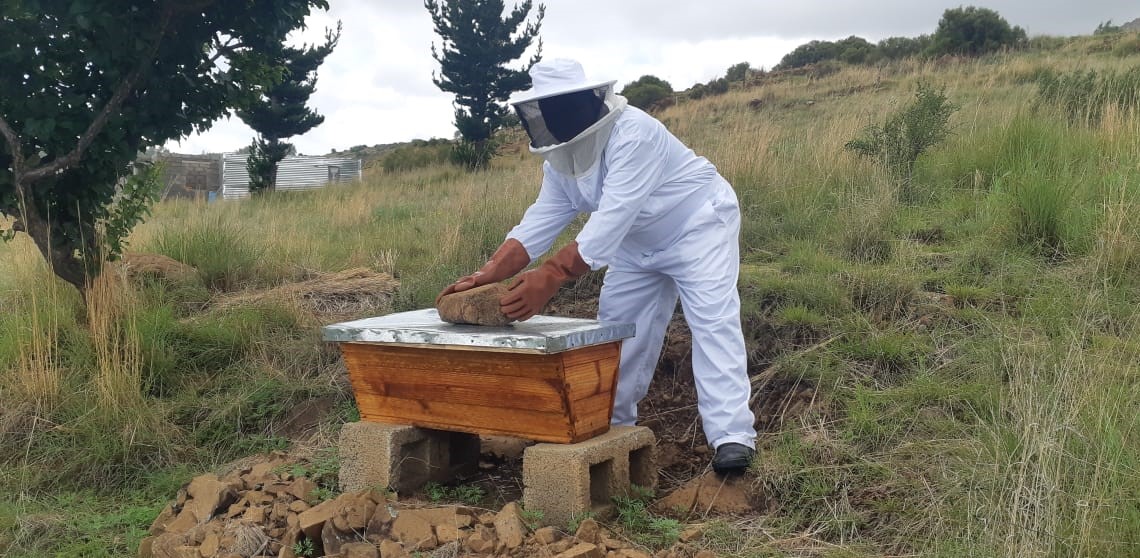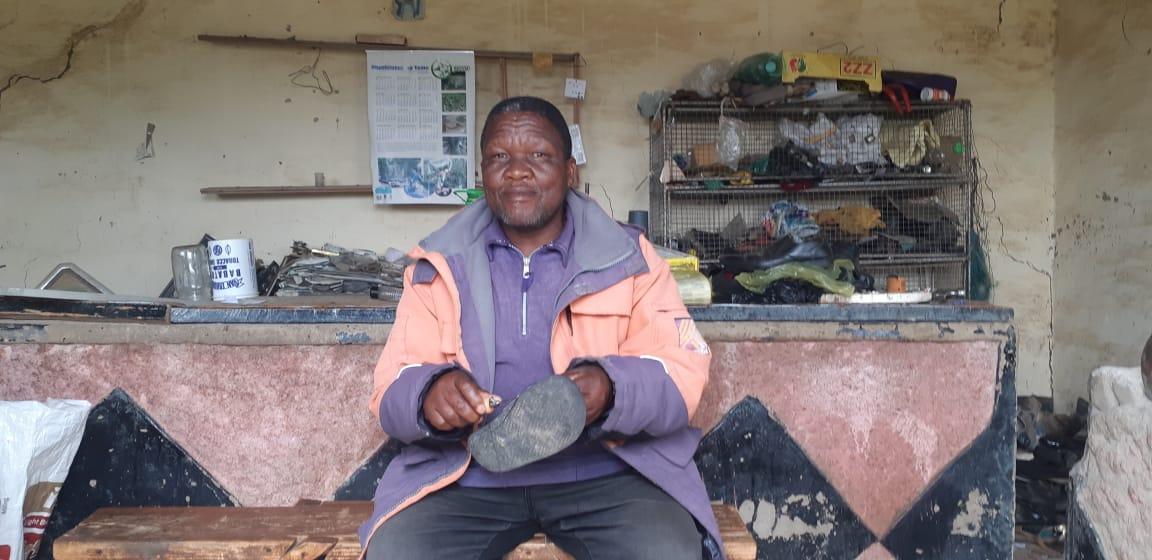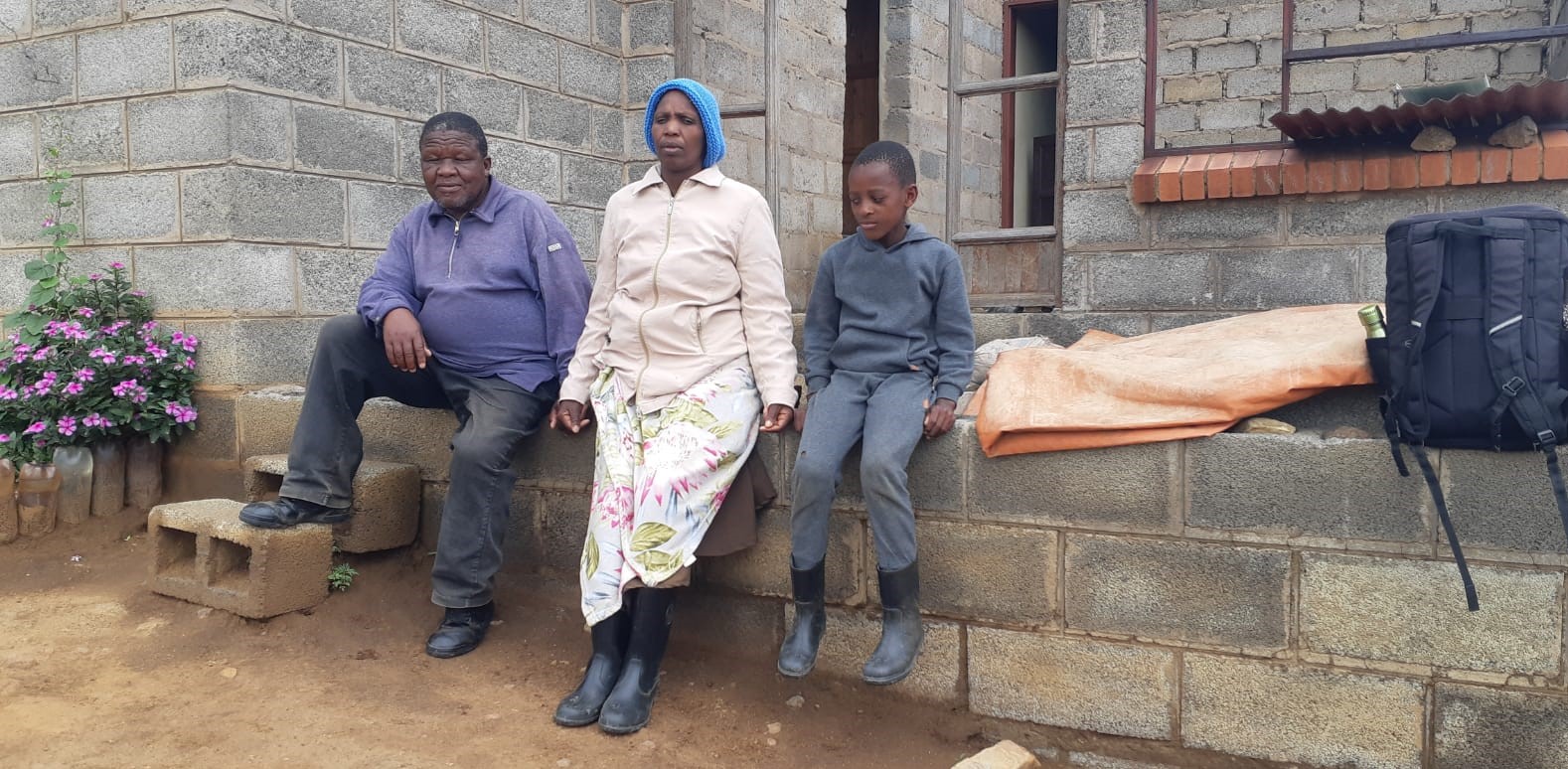Double benefit of bees brings relief to a family

Khauta Mohale is a 47-year-old Mosotho man of Kolo-Ha-Ntsie in Lesotho’s southern district of Mafeteng. He lives with his equally aged wife and their eight-year-old grandson in a home he built while doing some odd jobs in the community.
Since retrenchment, Mohale was challenged with making ends meet for his family. He resorted to repairing shoes of his community members, at a fee, operating from a local shopping complex, which would help him sustain his family. Mohale was also saving a portion of his income from repairing shoes.
“From the R5.00 I was charging per shoe I would save R2.00 on average, though I was not as consistent because sometimes the needs of the family would demand that I spend a lot more. For instance, in the event my grandson falls sick and my savings do not suffice,” Mohale narrates.

He continues, “I gradually began buying fruit trees from my little savings. I started about five years ago, and planted these trees on a patch of land in my yard. It was during this time that I also took part in a beekeeping techniques and good management training provided by Animal Gift Catalogue project implemented by World Vision Lesotho.
“When it came time for my trees to bear fruits, they were not healthy and good looking. I even thought that the land was not fertile enough. I was not aware that bees could improve the quality of fruits from the trees in my orchard through cross pollination before the training,
“The bees arrived at my yard in June 2021 and settled on an anthill for some time,” Mohale recalls. “I was not aware that there were other benefits I could benefit from the bees other than honey. Alas, after the training and being supported with a beehive and protective clothes, things took different turn.” He exclaimed.
Mohale relocated the bees from the ant hill into a proper bee hive in September 2021. This was at the time when trees were beginning to flower creating food for the bees. “You see I have learnt a lot,” he said with a confident smile.

“The quality of my harvest far exceeded the previous years after my trees were cross pollinated by the bees. The peaches were so strong that even the hail storm that overtook most of my fellow villagers’ plots and trees, mine were still there and strong, only a few of them have fallen.” He said.
Before long the peaches were ripe, and Mohale got to harvest for consumption and selling. This was most opportune for him seeing most people had lost their trees to hail storm. “I was able to keep my family well fed in that period and managed to support my shoe business as well from the sales,” he added.
“What I like about the bees is that every time you find them in their wild home like an anthill, you already have something to harvest, sell and eat. I got to harvest their honey and sold a little. I am certainly sure that what I will get in the next harvesting season will be super,
“The quality of my fruit tree produce seems to get better with time as well. This harvesting season my fruits are even better. I anticipate better sales,” Mohale concluded.
Animal Gift Catalogue project is working towards improved resilience and livelihoods of communities to better support and care for their families at Sekameng in the district of Mafeteng, Kota in the district of Leribe, and Mapoteng in the district of Berea.
This two-year project is funded by World Vision United States of America. It seeks to improve the livelihoods of 325 households in Sekameng, 409 households in Kota, and 274 in Mapoteng.